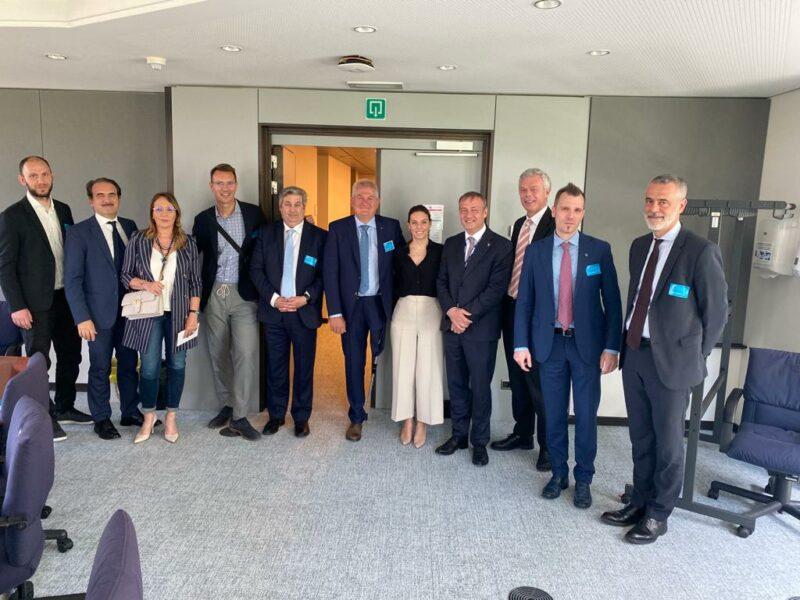Excessive regulations, not meeting the needs of the industry, unfair competition, shortage of raw materials. Also, the use of lead in alloys and the processing of hexavalent lead. These are all hot topics for cleaner drinking water, all issues that the Italian Association of Valves Manufacturers (AVR), the main Italian trade association in the sector and member of the European Committe for the Valve Industry (CEIR), discussed with Italian MEPs to create a new dialogue in the halls where important decisions are made for citizens and businesses.
Isabella Tovaglieri (Lega), Tiziana Beghin (M5S), Oscar Lancini (Lega), Patrizia Toia (PD), Massimiliano Salini (FI) met the AVR delegation in Brussels at the European Parliament, thanks to the support of Simona Baldassarre (Lega). Businesses understand that "what is decided here over the years is important," but are those who make these decisions aware of what is at stake? AVR wanted to dispel doubts, to make EU co-legislators "more aware" of the challenges and needs of its 64 member companies, representing 27,315 Italian workers and a €7.7 billion output, as well as an example of sustainability. "We are very green, we recycle everything," recalls Sandro Bonomi, president of AVR, who is attentive to EU green policy and the Green Deal. "We are in the circular economy". New brass comes from scrap using "little energy," and nowadays the new alloys needed for faucets and valves "do not contain lead" and "are not mixable with other alloys circulating in Europe."
A heritage to be protected, also considering that at the European level only Germany has a higher turnover, but Italy has the highest added value in valves and taps. More attention is called for and the Drinking Water Directive was evoked. There is recognition of a strong commitment to the health aspects, but not the same level of meticulousness for what pertains to the technical areas, which are the ones that closely affect businesses. Here, as with everything, decisions have an influence on the product. Another example is the use of chromium for purification use. It had been authorized, but the revision of the Reach directive on chemicals and substances will probably put a stop to it. "A nonsense," according to AVR, "because there is no contact with water.
Words that do not go unheard. "I am available for the Industry Committee, which has a pragmatic approach. If you get me information on the Reach directive then we work on it," assures Isabella Tovalieri (Lega). AVR's mission to Brussels seems to have produced that much-needed change of pace and the start of a whole new path. "We will keep in touch," assures the 5 Star Movement's head of delegation Tiziana Beghin: "I will take the requests to my colleagues, such as those in the Environment Committee." From the Pentastellati therefore "full availability" to help what Toia (Pd, member of the Industry Committee) regards as "a sector that is important for Italy and plus a flagship for Europe." He promises a structured dialogue with Anima and AVR, as well as with other groups. "Even with different ideas," he says, "we always try to share ideas on Italian businesses.
More cautious is Oscar Lancini (Lega). "If I can be useful in something," he says, "obviously I say yes within the limits of the Italian community, because here we are in a community that is not only Italian. The country can do its work, but at the Parliament decisions depend on other delegations as well. But like he says, "we need to make better use of Europe", and it seems that for the Italian valves manufacturers this moment may have just begun. This is the hope of the industry, meeting in Brussels to dialogue with Italian MEPs. "Brussels is always the future, the place to be". And AVR shows that it wants to contribute with increasing presence and attention.
